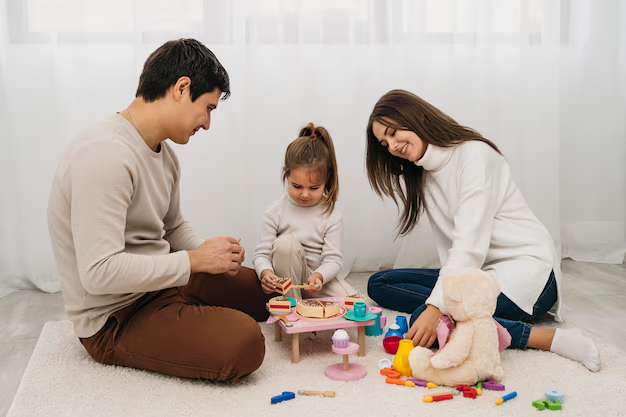Parenting is one of life’s most challenging and rewarding journeys. It is a complex, multifaceted role that involves nurturing, guiding, and loving children as they grow and develop. The way we parent shapes not only the lives of our children but also the future of society. Good parenting equips children with the skills, confidence, and values they need to navigate life and make a positive impact on the world. But parenting is not about perfection; it’s about progress, love, and creating a supportive environment where children can flourish.
The Role of Nurturing in Parenting
At its core, parenting is about nurturing. From birth, children rely on their caregivers for emotional, social, and physical support. Nurturing goes beyond just providing food and shelter—it involves giving children the tools they need to grow into confident, responsible individuals. One of the most powerful ways to nurture is through emotional support. When children feel loved, safe, and accepted, they develop secure attachments that contribute to healthy emotional growth.
Positive reinforcement plays a significant role in nurturing. Praising effort over results, encouraging curiosity, and acknowledging progress helps to build a child’s self-esteem and fosters a love for learning. When children see that their efforts are valued, they feel motivated to continue improving and developing their skills.
The Importance of Setting Boundaries
While nurturing is essential, setting boundaries is equally important. Children need structure to feel safe and secure. Boundaries teach children discipline, responsibility, and respect. Establishing clear rules helps children understand expectations and limits, providing them with a sense of security and consistency. These boundaries also teach them how to navigate social situations, manage their emotions, and make responsible decisions.
A common misconception is that strict parenting is the only way to establish boundaries. However, effective discipline involves consistency and calmness rather than harsh punishment. It’s important to communicate the reasons behind rules and ensure that children understand the consequences of their actions. In doing so, parents help children develop self-regulation skills, which are vital for their emotional and social development.
Leading by Example
Children learn a great deal through observation. From a very young age, they begin to imitate the behaviors, attitudes, and values they see in their caregivers. As parents, it’s essential to lead by example, demonstrating the qualities we hope to instill in our children. Whether it’s showing kindness, practicing patience, or managing stress in healthy ways, children absorb these lessons by watching us.
This doesn’t mean parents need to be perfect. It’s about being authentic and modeling behaviors that contribute to emotional well-being, resilience, and empathy. For instance, apologizing when we make mistakes teaches children the importance of accountability and humility. Similarly, expressing emotions in a healthy manner shows them how to handle challenges and setbacks constructively.
The Role of Communication in Parenting
Effective communication is key to building strong, trusting relationships with children. Open, honest, and age-appropriate conversations allow parents to understand their children’s thoughts, feelings, and experiences. Listening attentively to children validates their emotions and helps them feel heard and respected.
As children grow older, they may face complex issues related to friendships, school, or self-esteem. Parents who foster open lines of communication are better equipped to guide their children through these challenges. Encouraging children to share their feelings and concerns fosters a sense of closeness and helps them feel more secure in seeking guidance when needed.
Encouraging Independence and Responsibility
A key aspect of parenting is helping children develop independence. As children mature, it’s important to gradually give them more responsibility and freedom to make choices. This helps them build confidence, problem-solving skills, and the ability to manage their own lives.
Parents can encourage independence by allowing children to take on age-appropriate tasks, such as managing their schoolwork, chores, or decisions about their extracurricular activities. It’s also crucial to allow children to experience failure in a supportive environment, as this helps them learn resilience and the importance of perseverance.
Parenting Through Challenges
Parenting is not without its challenges. Every child is unique, and parents will inevitably encounter moments of frustration, confusion, and uncertainty. From dealing with temper tantrums in toddlers to navigating the complexities of adolescence, parenting requires flexibility, patience, and understanding.
One important lesson is that there is no “one-size-fits-all” approach to parenting. Different children may require different approaches depending on their temperament, needs, and circumstances. The key is to stay adaptable and keep an open mind, seeking support from other parents, professionals, and resources when necessary.
FAQs
1. What’s the best way to balance discipline and nurturing?
The key is to maintain consistency in setting boundaries while showing warmth and understanding. Discipline should always be communicated with empathy, explaining why rules exist and reinforcing positive behavior.
2. How can I foster a sense of independence in my child?
Start by giving your child small responsibilities and gradually increase them as they show readiness. Encourage decision-making, praise their efforts, and allow them to learn from mistakes.
3. How do I handle a situation where my child acts out?
Focus on staying calm and composed. Address the behavior with clear boundaries and consequences, and offer alternatives to guide them toward better behavior. Communication is vital—make sure your child understands why their behavior is unacceptable.
4. How can I build a strong relationship with my child?
Spend quality time together, listen actively to their concerns, and engage in open conversations. Show interest in their world and create a space where they feel safe to express themselves.
5. What role does empathy play in parenting?
Empathy is crucial for building strong emotional connections with your child. By validating their emotions and modeling empathetic behavior, you help them develop emotional intelligence and a sense of compassion.
6. How can I encourage my child to make good decisions?
Provide guidance, but also give your child the opportunity to make choices and experience consequences. Support their decision-making process and help them learn from both successes and failures.
7. When should I seek professional help in parenting?
If you notice consistent challenges in your child’s behavior or emotional well-being, it’s a good idea to seek professional help. Parenting support can provide new strategies and insights for overcoming difficulties.
Conclusion
The art of parenting is an ongoing process of growth, learning, and adaptation. It’s about nurturing your child’s development, setting boundaries to provide structure, and being a positive role model. Through empathy, communication, and the encouragement of independence, parents can help their children navigate the complexities of life. While parenting can be challenging, it is also one of the most rewarding experiences, as it shapes the next generation of individuals who will contribute to the world in meaningful ways.
Key Takeaways:
- Nurturing, setting boundaries, and leading by example are foundational principles of good parenting.
- Communication, empathy, and encouragement of independence play crucial roles in raising well-rounded children.
- Parenting is a journey that requires patience, flexibility, and a willingness to adapt to each child’s needs.

